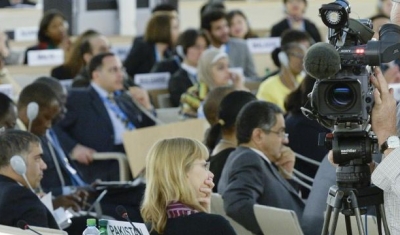Participants discussed the many challenges and opportunities surrounding DHRTTDs’ accessibility, sustainability, and interoperability.
Accessibility took centre stage as participants addressed open and limited access to DHRTTDs, web accessibility for persons with disabilities, and the need for tools available in various global languages. These sub-themes align with the universal principles of human rights, emphasizing the critical role of inclusive participation for accurate data collection and human rights implementation. The essence of inclusivity was further underscored by specific strategies ensuring DHRTTDs cater to the needs of persons with disabilities, as well as the importance of linguistic diversity in these tools.
Sustainability discussions highlighted the long-term viability of these digital tools. Attendees debated coordination in data collection, solutions to staff turnover, techniques to boost user adoption, and the establishment of strong partnerships for consistent support. Investment, funding opportunities, and the integration of technologies like artificial intelligence (AI) and machine learning were also at the forefront of the conversation, considering both the opportunities and ethical considerations they bring.
Interoperability, another key theme, showcased the importance of synergy among various DHRTTDs. Through cooperation initiatives, automated interactions, knowledge-sharing platforms, and a potential roadmap for 2024, participants explored ways to maximize the potential of digital tools for comprehensive data collection and a less fragmented human rights tracking approach.





